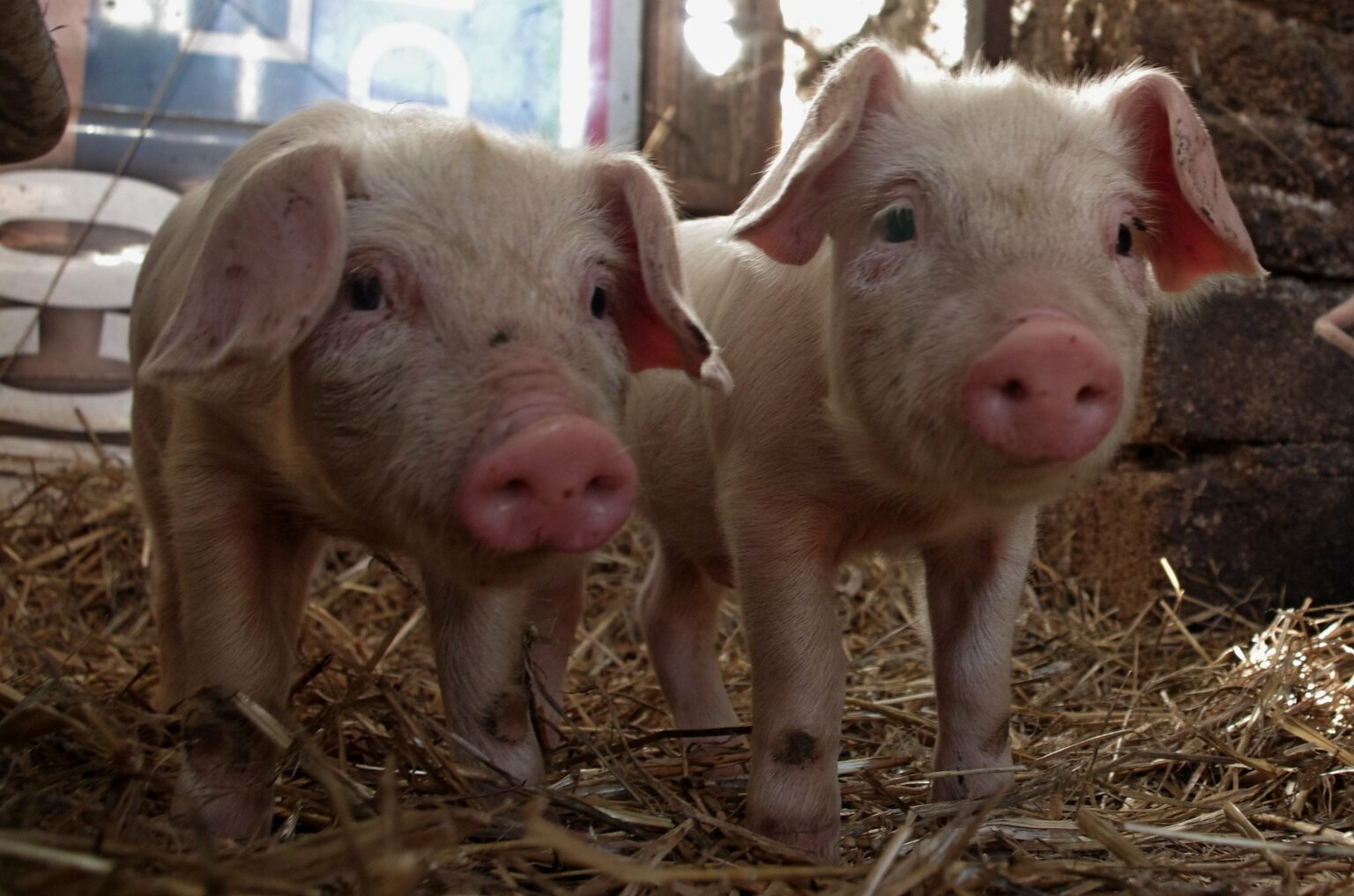- About
- Topics
- Story
- In-Depth
- Picks
- Opinion
- News
- Donate
- Signup for our newsletterOur Editors' Best Picks.Send
Read, Debate: Engage.
| June 06, 2022 | |
|---|---|
| topic: | Sustainable Consumption |
| tags: | #sustainable consumption, #food, #agriculture, #sustainable production |
| located: | Germany |
| by: | Frank Odenthal |
A project run by the University of Greifswald in Germany poses this exact question and informs customers what the actual price of their dish would be once all of the external hidden costs are factored in.
FairPlanet had a word with Amelie Michalke, the project's leader.
FairPlanet: How exactly does it help biodiversity when a customer is aware of the true cost of food items they purchase?
Amelie Michalke: In our economic system, supply and demand regulate the price. We're talking about free markets, and prices are formed in these free markets when everything that goes into production is priced. At present, however, environmental and social consequences are not priced. This means that we currently have lower costs and therefore lower product prices. In other words: the external costs that arise during production are not taken into account. If they would be considered, in the case of products that are manufactured sustainably anyway, the price would then not rise so much.
But products whose production causes major environmental damage would be set at a much higher price. And the effect that would have on the market is straightforward: higher price - lower demand.
Of course, that doesn't apply to luxury goods, but food is not supposed to be a luxury item. In any case, the result would be that non-sustainable food is less consumed and then ultimately produced in smaller quantities. In other words, negative environmental impacts would be limited.
What some types of hidden costs?
We are currently dealing with the ecological follow-up costs, such as greenhouse gases or toxic substances such as pesticides, etc. This also includes energy consumption. But there are also social follow-up costs, such as animal welfare or fair wages, the expulsion of indigenous population groups, like in the Amazon region, for the cultivation of animal feed.
In other words, all these costs that are incurred along the value chain, but for which no one pays a price. The problem: What price would you estimate for fresh air, or our climate?
Conventional agriculture is repeatedly mentioned as one of the main drivers of environmental degradation, also with regard to climate change. Can you explain why?
Agriculture, including all related areas such as changes in land use for agricultural land, is responsible for a quarter of all global greenhouse gases. That is huge. The sector is, of course, very important because it literally feeds us. So you can't just cut it. But it has enormous potential to save greenhouse gases.
It is important to distinguish between different agricultural products. Animal products in particular have high hidden costs. There are calculations that state that the animal products sector is responsible for more CO2 than the entire global transport sector.
In relation to all agriculture, animal products are responsible for seventy percent of greenhouse gases, but provide only thirty percent of the calories.
By how much would food prices rise if all of the hidden costs were factored in?
It depends on which methodology is used when calculating the true costs. The study we did with the German discount retailer Penny looked at the factors of energy, nitrogen, carbon dioxide and changes in land use. Pesticides, antibiotics and social follow-up costs are not even included there. There were price increases of two to twelve percent for plant-based foods, with up to nineteen percent for conventional bananas.
For animal foods, prices increased by up to 174 percent for meat, which is about three times as much as they currently cost.
The project is a cooperation between the University of Greifswald and Tollwood GmbH. Can you elaborate on your work with the company?
Tollwood GmbH is our association partner, we designed the entire project plan together. Tollwood is a culture and event company based in Munich that organises festivals twice a year. These are arts and culture festivals with a strong focus on sustainability.
They also launched the 'Bio für Kinder' (Organic for Children) project, in which kitchen staff in school and day-care center canteens are trained to use sustainable products and integrate them into their menus. It was first limited to facilities in Munich, but is now also spreading to Bavaria, and then throughout Germany.
At the Tollwood Festival, Toolwood GmbH presents the University of Greifswald’s latest research results as well.
At first sight, your cooperation with discount retailer Penny comes as a surprise, as their core business model is supplying goods as cheap as possible.
We started the project "How much is the dish?" in September 2020, and Penny joined as an associate partner. Penny planned a sustainability store in Berlin, and as part of their marketing campaign they joined our project. The idea was to establish our research results in this sustainability store.
When this store opened, we had an info point there where we advertised sixteen foods with the two price tags - real cost and true cost. And the media interest actually focused primarily on our campaign. There was a lot of positive feedback, which Penny didn't expect at all. It didn't change anything in the discounter's purchasing policy at first, but it had a very good external i.e. public impact. We really want to expand our collaboration with Penny in the future.
Many food items would become significantly more expensive if hidden costs were taken into account. Isn't there a danger that such groceries would then only be affordable to wealthy customers?
That is indeed a perfectly legitimate question. At the moment we only describe what prices would be necessary to reflect the true costs. However, we are not yet ready to issue any recommendations for implementation measures.
The social justice factor is very important to us. Measures must therefore be developed that take this into account. It must not be that meat or other foods then become a luxury good. And those who can afford it are allowed to cause the damage, and those who cannot afford it are disadvantaged or marginalised. A ticket for illegal parking, for example, is only a penalty for those who cannot afford it. For this reason, we have now also integrated social scientists into our team.
One could also see the project as a psychological game, namely as a speculation that the customer will feel guilty when confronted with the true costs. Do you agree?
Not really. We have a guilty conscience when our actions are not morally justifiable. Irresponsible use of natural resources is not morally justifiable, because we use these resources at the expense of future generations and also at the expense of people who are already suffering from the consequences of climate change, in marginalised groups and in regions that are very volatile.
That's why I think a guilty conscience isn't necessarily a bad thing here. It depends what you make of it. And it is important to show the consequences of our way of life. If people become truly aware about these consequences, consumer behavior will hopefully change.
By making the of true costs of food items available to the public, isn't the responsibility for the false incentives along the supply chain simply being passed onto the customer? Shouldn't politicians introduce appropriate framework conditions for our market economy that meet sustainable criteria?
Yes, that is a very important point. Here, too, it is about the implementation measures. Our project is also an awareness campaign. We want to raise awareness of how expensive our food would be if we produced it sustainably.
What we don't want is to say that the sole responsibility lies with the consumer. In surveys, we learned that 90 percent of consumers see politics as responsible, not consumers themselves. Of course, retail chains should also be obliged to behave in a sustainable manner. But these retail chains need political framework conditions that demand this and that also enable it.
If we ask politicians, we get a lot of approval, but unfortunately little happens because politicians then fear the reaction of consumers at the ballot box.
"A guilty conscience isn't necessarily a bad thing here. It depends what you make of it."
Are you aware of any comparable projects carried out in other countries?
In the Netherlands in particular there are a number of initiatives that are moving in this direction, such as the True Pricing Foundation, or Wageningen University, which are working intensively on True Cost Accounting.
We've been researching this for six years now, but in the last 2-3 years the topic has finally gained wider public attention.
How much funding did you receive for the project?
The funding for our complete network is around 800,000 euros for three years, which we, i.e. the University of Greifswald, and Tollwood GmbH receive from the German federal government.
How would this project have to end for you to view it as a success?
Expanding the campaign with Penny would be important to me. Of course, the coronavirus pandemic got in our way, which had a massive impact on the day-to-day business of discount retailers like Penny. And of course we did not foresee the war in Ukraine, which will have an incredible impact on the food sector. Therefore, it is currently not clear whether we can expand the project as we would like.
But I would consider it a great success if the topic would get much more attention in the public discourse. And, if possible, there should ultimately be a cooperative and productive exchange with politicians. At the end of the project we will publish a catalog of political measures. It remains to be seen to what extent it will be applied.
Amelie Michalke is an industrial engineer at the University of Greifswald in Germany and leads the "How much is the dish?" project.
Image by Damla Ozkan.
By copying the embed code below, you agree to adhere to our republishing guidelines.

